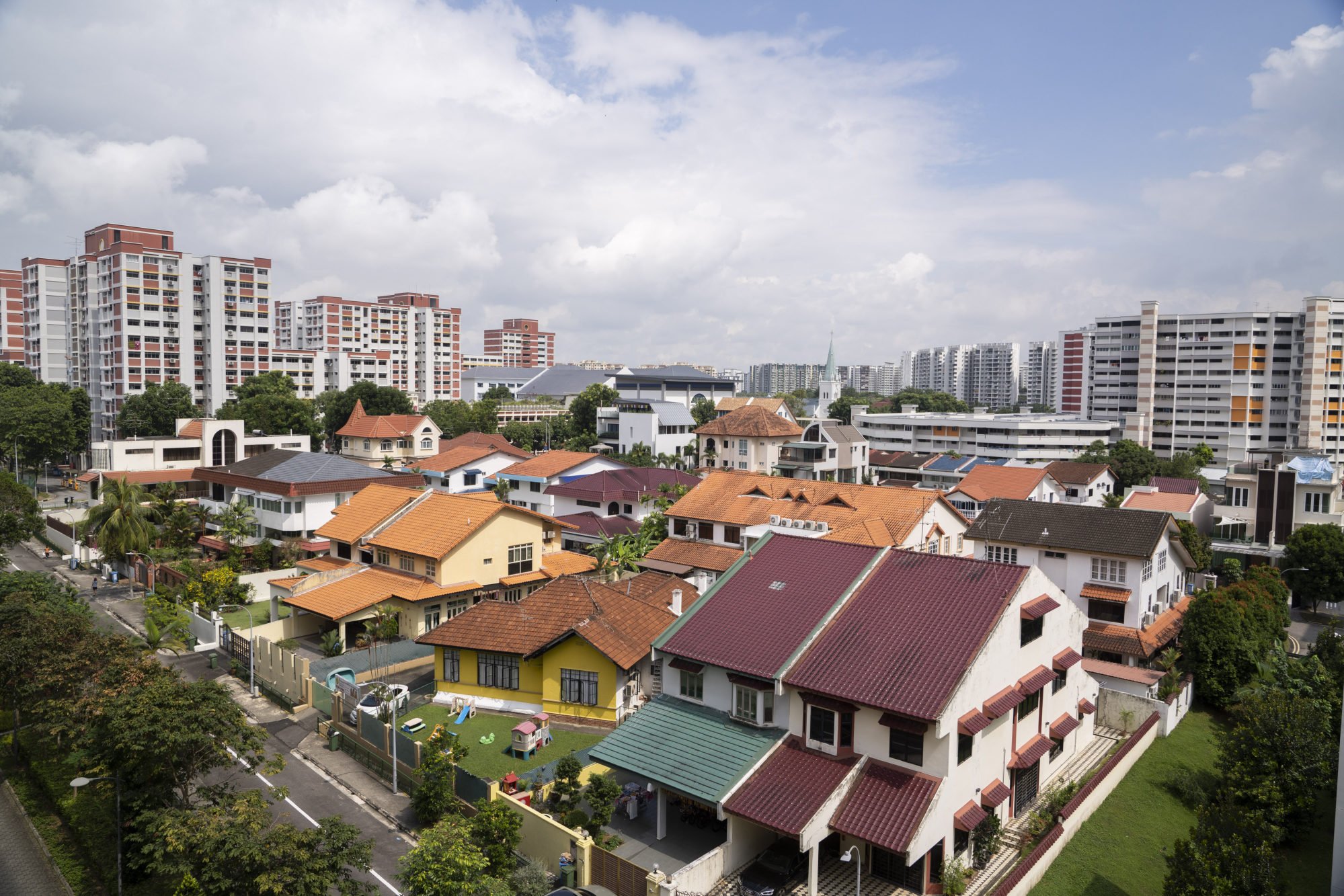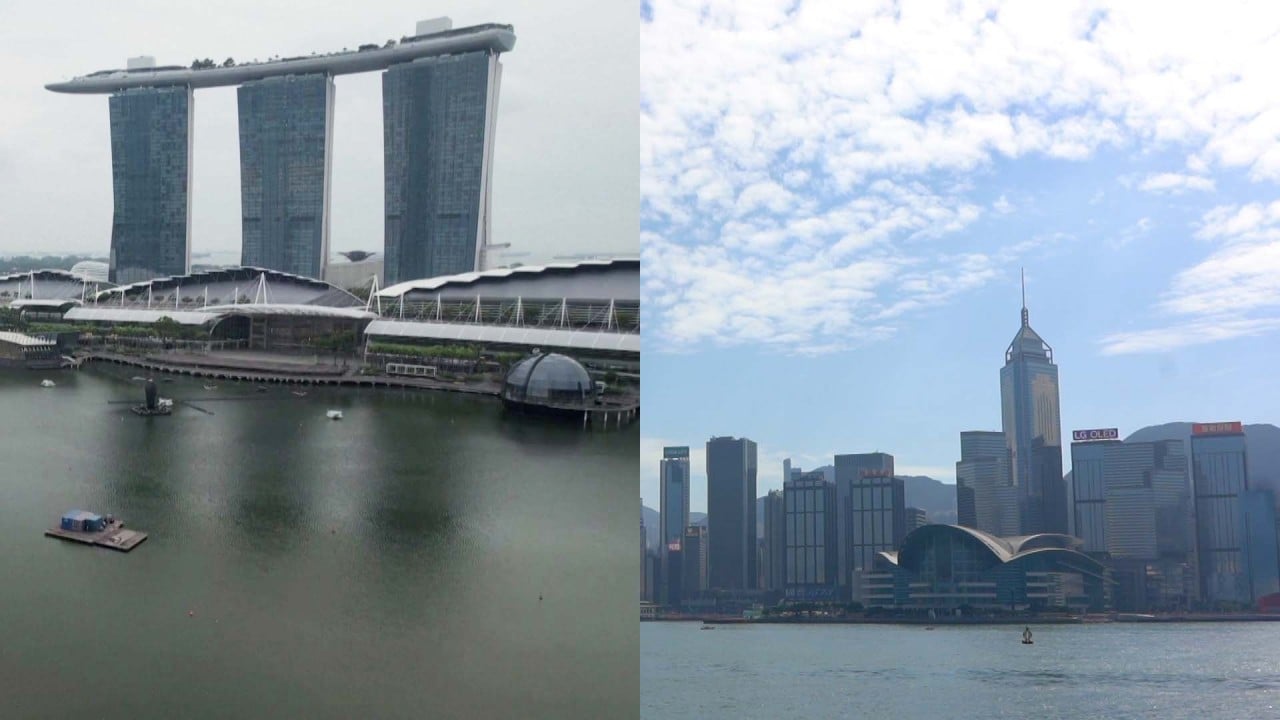
Singapore’s private property tax hike for foreigners akin to ‘freezing measure’, sector says
- Singapore’s real estate market has been red-hot in part due to cash inflows from China and elsewhere, as investors bet on Singapore’s safe haven status
- The move, which comes ahead of a possible election next year, is expected to attract a ‘knee-jerk’ reaction that will impact residential developers, analysts say

In a surprise announcement on Wednesday night, the government doubled the additional buyers’ stamp duty (ABSD) for foreign homebuyers to 60 per cent. For Singaporeans, the ABSD for a second residential property is now 20 per cent, up from 17 per cent, while for third and subsequent homes, the ABSD is 35 per cent, up from 30 per cent. Singapore’s permanent residents also face higher levies.
The new rates will impact about 10 per cent of private property transactions.
Property analysts told This Week in Asia that the latest increase in duties – one of the harshest tightening moves in the market in recent years – were akin to “freezing measures”, given the scale of the tax hike for foreign-born residents. Authorities last raised the ABSD in late 2021, and last September tightened home loan limits.
Citigroup analyst Brandon Lee described the doubled ABSD for foreigners as “draconian”. “We expect a knee-jerk negative impact on shares of residential developers,” he said.
Will more Singapore homes be built, launched in 2023 amid ‘climate of caution’?
Minister for National Development Desmond Lee on Thursday told local reporters that while private property prices moderated in the fourth quarter of 2022, they rose 3.3 per cent in the first quarter of 2023 because of renewed local and foreign demand.
Foreign purchases of residential property accounted for about 7 per cent of all transactions in the January-March quarter, he said.
“Foreign interest in residential property in Singapore, as an asset class, continues to be strong. And therefore, if we don’t take early pre-emptive measures, we may see investment numbers both by locals and by foreigners grow, and that will add stress to Singaporeans who are looking to buy residential property principally for own occupation,” Lee said.
The rate hike for foreigners was necessary to “calibrate the ABSD rate in order to have an effective dampener on investments from abroad”, the minister said.

Property analysts said the 2021 ABSD hike for foreigners – from 20 per cent to 30 per cent – had resulted in a sizeable drop in the number of non-Singaporeans buying private condominium units.
Still, there had been a growth in “non-locals” buying property with permanent residency status or as naturalised citizens, said Christine Sun, senior vice-president of research and analytics at OrangeTee and Tie.
The consensus view of analysts was that the latest measures are likely to have an outsized impact on the prices of luxury homes and properties in the city state’s upmarket central region.
Lee Sze Teck, senior director of research at real estate agency Huttons, said the latest round of cooling measures was a “pre-emptive move to stem the number of high-end luxury home sales”.
Lee noted that there had been a surge in enquiries about the local property market from potential foreign buyers, particularly Chinese corporate entities and ultra-high net worth individuals looking to set up family offices, after Singapore fully lifted Covid-19 travel restrictions last year.
He said that the move sends the signal that the government is prioritising its citizens for housing, adding that foreigners may buy a flat when they have obtained permanent resident status.
The rental market, which authorities have also sought to cool in recent months, could see a lift following the latest cooling measures, Lee said.
With purchasing a second home seen as too costly, well-off Singaporean buyers may cash in on the buoyant market by selling their first property and renting in the interim, he said. Foreigners, meanwhile, are likely to rent while awaiting permanent residency or citizenship status.
A look at Singapore and Hong Kong’s property cooling measures
“Anecdotally, there are foreigners who rent with an option to purchase the home once they become PR or citizen. The rental market will pick up in the coming months and rents are estimated to grow around 10 per cent in 2023,” he said.
The move may drive potential property investors away from investing in physical real estate entirely and turn to other assets instead, said Nicholas Mak, chief research officer at Mogul.sg. “Some investors may invest in real estate indirectly, such as through REITs or securities of property developers,” he said.
Shares of Singapore property companies fell on Thursday, with City Development and UOL Group, which have large Singapore footprints, hit hardest.
Additional reporting by Reuters and Bloomberg


